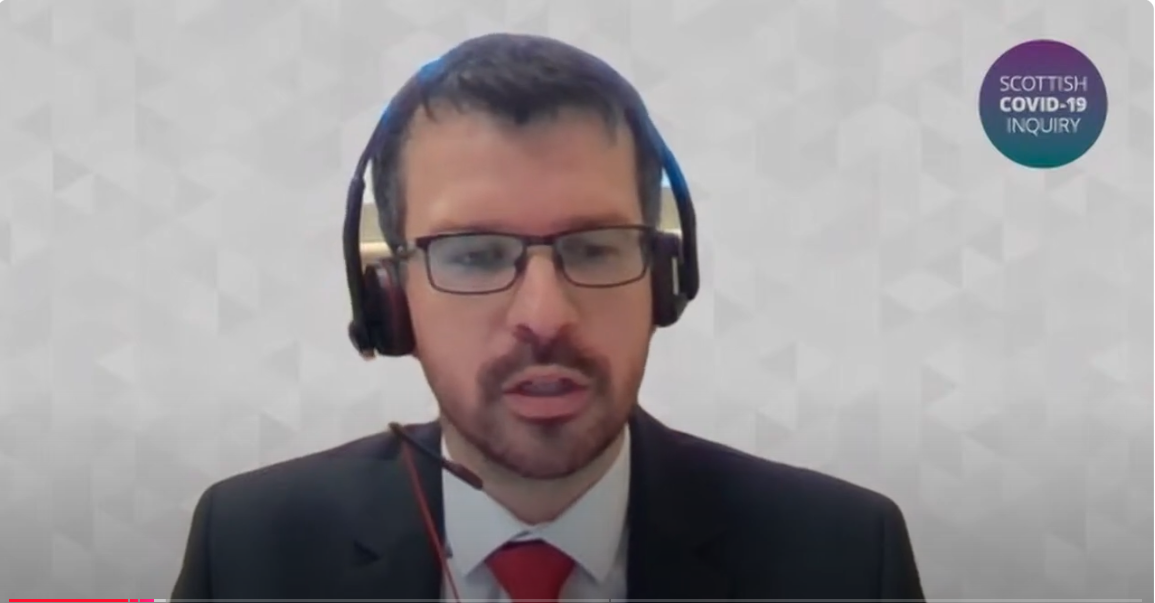A remote learning platform set up to provide online schooling to pupils in the Western Isles ended up playing a ‘significant’ role in Scotland’s national Covid response.
The e-Sgoil platform, set up in 2016 to fill gaps in timetables caused by a lack of teachers, was used to scale up online education during the pandemic, the Scottish Covid inquiry has heard.
Steven Graham, Head of e-Sgoil, was taking part in an evidence session yesterday as part of the Education and Certification Impact Hearings.
He said e-Sgoil was tasked by the Scottish Government in 2020 to deliver all live elements of the National e-Learning Offer (NeLO), which sought to support schools and learners affected by pandemic disruption.
The NeLO offer saw e-Sgoil draw on its dispersed team of online teaching staff to produce a comprehensive range of live, interactive lessons and experiences for children and young people at all levels, in both English and Gaelic.
Graham was questioned around the significant challenges faced by teachers, schools and local authorities at the time and asked to comment on lessons learned and future resilience.
The Inquiry also heard of the legacy of much of the pandemic work which sees a number of national e-Sgoil programmes continuing to support learners as part of the Scottish Government funded NeLO offer.
Graham said: “e-Sgoil’s role as part of the national response to the pandemic is an example of how the periphery can be front and centre in a digital world. It is remarkable to consider the significant impact made during the pandemic by a small, island-based team and to reflect on the benefits of working in collaboration with partners from across Scotland. The Inquiry hearing provided us with an opportunity to highlight how much of the work initiated during the pandemic continues to shape the current e-Sgoil offer.”
The Scottish COVID-19 Inquiry is chaired by Lord Brailsford and was set up in February 2022 to investigate the devolved strategic response to the coronavirus pandemic in Scotland between 1 January 2020 and 31 December 2022. The Inquiry works independently of government to establish the facts and identify lessons to be learned. Once concluded, it will present its findings and make recommendations to Scottish Ministers.




